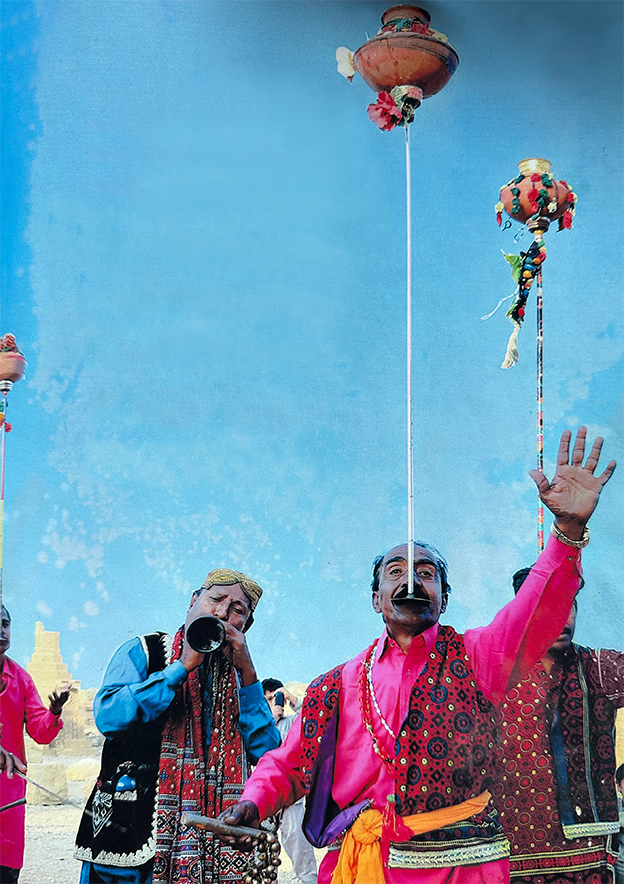ISLAMABAD: Defense Minister Khawaja Asif on Friday denied media reports of a decision pertaining to Pakistan army chief's appointment made at a meeting between Prime Minister Shehbaz Sharif and his self-exiled elder brother Nawaz Sharif in London, which has been the subject of much debate in the South Asian country.
General Qamar Javed Bajwa has been the Pakistan army chief since November 2016. He is due to retire on November 29 following the final day of his second three-year term as the chief of army staff.
But the selection of the new army chief has been marred by controversy in Pakistan in recent months, with widespread speculation that Bajwa might take a second extension, though the military recently said the army chief would retire on time and was paying "farewell visits" to different garrisons.
The debate again began this week with PM Sharif's arrival in London for what the local media reported were discussions with Nawaz, founder of the ruling Pakistan Muslim League-Nawaz, on the new appointment.
Nawaz, who lives in self-exile in London, has been facing a slew of corruption cases back home. Opposition leaders have criticized the government and said Nawaz, who does not hold any public office and is wanted by the law, should not be part of such discussions.
Defense Minister Asif on Friday rejected speculation in the media on army chief's appointment and said a decision in this regard would be made after the beginning of the constitutional process for the appointment.
"Speculation are being made in the media that a decision has been taken regarding the appointment of the army chief at the Nawaz-Shehbaz meeting in London," he said on Twitter.
"Consultation has definitely been held in this regard, but the decision will be made through consultation after the start of the constitutional process, God willing."
Asif's comment was a reference to the constitutional process regarding the army chief's appointment, wherein the sitting chief of army staff sends a list of the names of senior most army officers to the government. The president appoints a general as the new army chief on the advice of the prime minister.
A day earlier, Asif told a local TV channel the government wanted to deal with the matter of the army chief’s appointment “with dignity” and avoid controversy.
The minister, who is in London and part of the meetings as well, referred to a military statement on Bajwa's farewell visits to garrisons as a “major indication where an institution (army) is taking this matter.”
However, the meetings between PM Sharif and his elder brother in London have only added fuel to the fire back home.
Nawaz was removed from office in July 2017 by the Supreme Court for not declaring income from a company in United Arab Emirates. The court ordered the country's anti-corruption watchdog to open a criminal trial into the Panama Paper revelations that showed involvement of the Sharif family in siphoning off public funds into offshore accounts, which were later used to buy luxury flats in London.
In April 2018, the Supreme Court barred Sharif from holding a political office for life, while months later an accountability court convicted him of corruption and sentenced the three-time former prime minister to 10 years in prison.
In November 2019, Nawaz left Pakistan after securing bail on medical grounds and has since not returned. The former premier says the cases against him are politically motivated and claims innocence.
But members of opposition have criticized PM Sharif for discussing the army chief’s appointment with Nawaz, whom they call an “absconder.”
The appointment of the new army chief has gained much public attention as ex-premier Imran Khan, who was ousted in a parliamentary no-trust vote in April, insists that Sharif's government, which took over as a result of a parliamentary vote following his ouster, does not have the right to appoint a new chief. Khan says the appointment should be made by an elected government after the next general elections.
Of late, Khan has also been a critic of the army, and its chief, who he says did not block his ouster and allowed his rivals led by Sharif to come to power. The military says it remained "neutral" during the political transition.
Since Khan’s ouster, anti-military trends and posts on social media have become a routine occurrence in Pakistan, where the military was long feared and for decades ruled either through coups or as the invisible guiding hand in politics.
The criticism of the military became so widespread in recent weeks, particularly after the killing of a pro-Khan Pakistani journalist under mysterious circumstances in Kenya, that the head of Pakistan’s powerful spy agency, the Inter-Services Intelligence (ISI), made a rare public appearance last month to question Khan’s motives behind anti-army remarks and portraying Bajwa as a “traitor” among his followers.
This was the first time in Pakistan’s history that the head of the ISI addressed a media briefing.
Khan is also leading a protest march on Islamabad to force Sharif into announcing early elections in the country, which are due in late 2023.




















